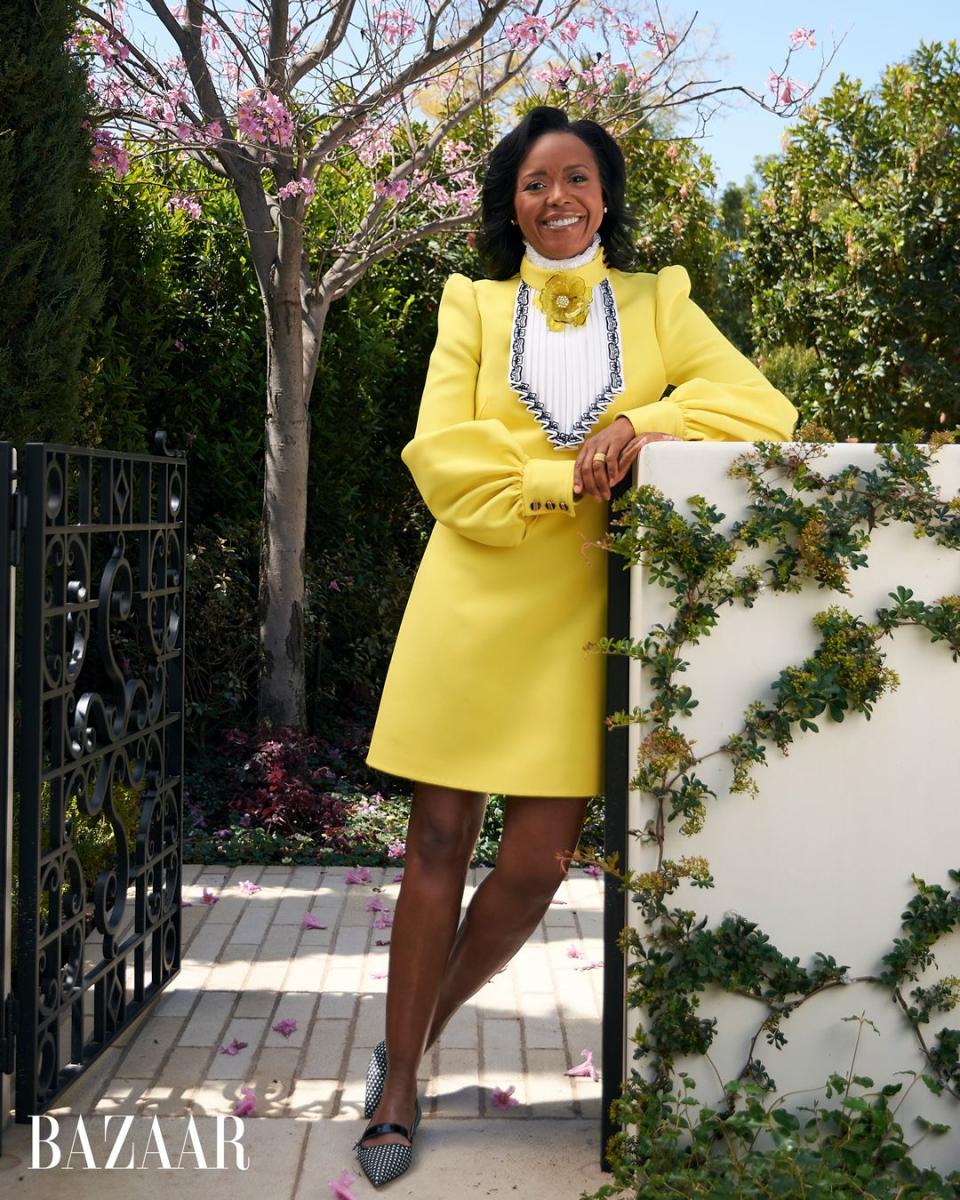Mellody Hobson on Achieving Financial Freedom and the Importance of Investing in Yourself


I'm the youngest of six kids born to a single mom. At times she made really bad financial decisions and we would often get evicted, or our phone would get disconnected, or our lights would be turned off. All of it weighed on me tremendously. It also fueled this need to understand money. I thought: “If I can understand it, I can make good decisions. If I make good decisions, I’ll be secure and therefore free.”
Because my mom was always working to make ends meet, I figured out how to make my own way. I found my own orthodontist when I was in fifth grade because I had a fang on only one side of my mouth. I went to the consultation alone, and he told me I needed braces and that they would cost $2,500. I was like, “We don’t have that much money!” He gave me a payment plan for around $50 per month, and I brought it home to my mother. I ended up wearing braces for five years.
That’s something I’m grateful for—I always knew what things cost. Starting from when I was five, if my mother and I went to McDonald’s she would have me hand the money to the cashier. That escalated into me counting change, computing tips, and writing out checks, which she would sign. I see that as a gift because nothing surprised me about life in terms of cost and expense, except for when I bought a mattress after I graduated from college. I was like: “Fifteen hundred dollars for a mattress? This is crazy!” She said, “The per diem on that mattress is pennies!” I thought that was brilliant.
In school, I was intently focused on doing well. I was running toward security. My world was chaotic, and school created structure, and I realized that it would be the stepping-stone to another life.
I went to Princeton, but I had to borrow money for tuition. When I graduated and was hired at Ariel Investments in Chicago, I was so averse to debt that even as my paychecks grew I lived off my starting salary and put everything else toward my student loans and buying my first apartment, which cost $155,000. I did that instead of expanding my lifestyle and paid off my student loans in just a couple of years. That was my first step toward financial freedom.
With student debt, there’s a direct correlation between educational achievement and income. For that reason, of all the debt you can have, student loan debt is the best. Now, do I think these expenses are very, very high? Absolutely. I remember when the College Cost Reduction and Access Act was passed in Congress in 2007, which stipulated that if you worked in public service for 10 years, your debt would be forgiven. I know there have been a lot of problems with the government’s fulfillment of that promise. I would hope we could be more creative like that.
Another thing I did early on was figure out how much I made in a day. Anything I bought, I always looked at through the lens of how much work it was: This is five days of work; this is two weeks. It allowed me to understand what I had to do to get something.
I also made a commitment that I would escalate my 401(k)contribution every time I got a raise, and had a date by which I wanted to max out my 401(k) each year. In 2019, only 12 percent of people maxed theirs out. Whatever you put away early on is magic because of compounding. It’s just gold.
In America, we save more when times are bad and we spend more when times are good. It’s antithetical to what the economy needs. When Covid shut down the world, it resulted in the highest spike in unemployment we’d ever seen in U.S. history. Globally, as many as 150 million people lost the status that they’d gained, and fell back into extreme poverty.
It’s in these moments that you have a tremendous opportunity to rewire people when it comes to money management. It’s why Depression-era babies were the greatest savers in American history. My mom, who was born in 1928, was the person who would take tea bags or a couple of extra Splenda packets from restaurants.
I’ve now worked at Ariel for 30 years and serve as the company’s co-CEO and president. I was attracted to Ariel because the founder, John Rogers, was this wunderkind; when he started Arielin 1983, it was the first Black-owned money management firm in the nation. I saw John as a conduit to the knowledge I needed in order to be financially secure over the long term.
Throughout my career I’ve been consistently underestimated because of my race and my gender, but that underestimation has fueled me. There’s this quote, “Are you bitter or better?” I have to strive for excellence every day. There are moments of great pain and anguish, and I don’t want to suggest that I can just walk everything off, because I can’t. But there’s a bigger task at hand, which is helping others overcome it too.
I am really focused on creating opportunity for others. Ariel is a symbol, and I need that symbol to be successful so that maybe others will want to be in the business we’re in. They’ll see us and say, 'They did it, I can do it.' I want to make sure that wherever I am I share power.
This article originally appears in the June/July 2021 issue of Harper's BAZAAR, available on newsstands now.
GET THE LATEST ISSUE OF BAZAAR
You Might Also Like
